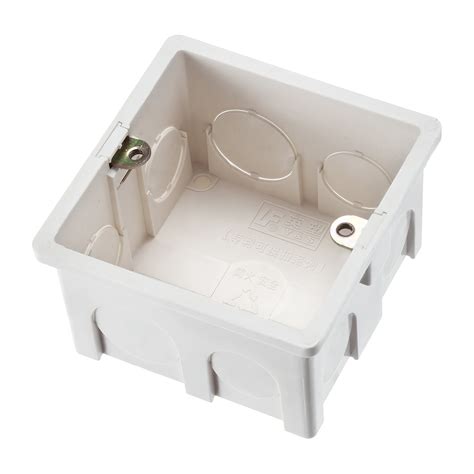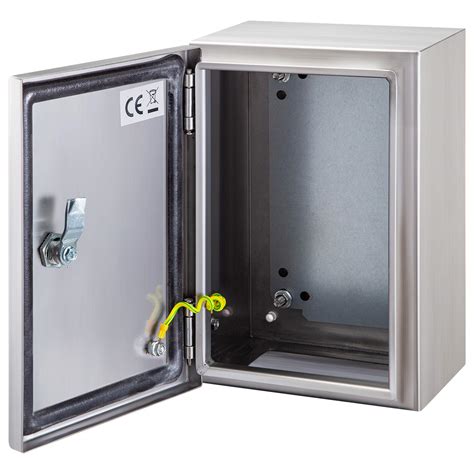electrical box on building wall Choose a location for your junction box that is easily accessible and complies with local electrical codes. The box should be mounted securely to a stud or joist, with its face flush to the wall surface. For exterior installations, . The Trim-A-Brake II sheet metal brake bends up to 130 degrees with ease and offers a 13 inch throat depth, a material stop for repeat bends, a unique toggle-lock handle, and a protective vinyl strip. The Rigid "I" beam base rails help keep the brake .
0 · wall mounted electrical outlet boxes
1 · wall mounted electrical boxes
2 · electrical wall outlet boxes
3 · electrical wall boxes residential
4 · electrical wall box bunnings
5 · electrical box for 2x3 wall
6 · electrical box for 2x2 wall
7 · electric enclosure wall mounted box
Complete body fabrication from photos or patterns. Stainless steel, brass, or alloy trim and brightwork fab. Sheet metal structural component or body section fab. Corrosion repair to OEM standards
The box should be positioned at a height and location that not only meets your needs but also adheres to local building codes and regulations. . Securing Electrical Boxes . Choose a location for your junction box that is easily accessible and complies with local electrical codes. The box should be mounted securely to a stud or joist, with its face flush to the wall surface. For exterior installations, .
k100 stainless steel battery box
Follow these easy tips to make sure your electrical box installation looks professional and meets code requirements. typically are mounted to the sides of studs for . Electrical boxes provide the means for securely mounting and organizing the electrical cables and devices (outlets, light fixtures, switches, etc.) in the ceilings and walls. Electrical boxes enclose the wiring connections to . Electrical boxes come in many styles, each designed for specific purposes. Understanding these differences will help you choose the right box for your project. New work boxes are used in new construction or when walls are .
Follow these expert tips to install an electrical box into drywall or plaster without the need for wall studs or joists. Not all fixtures need to be attached to a wall stud or joist. Lightweight fixtures can hold up on plaster or drywall if you have a remodel electrical box.
kawasaki zxi 1100 electrical box
The box should be positioned at a height and location that not only meets your needs but also adheres to local building codes and regulations. . Securing Electrical Boxes on Uneven or Brittle Walls - When dealing with uneven surfaces or old, fragile masonry, attaching the electrical box securely becomes challenging. Uneven surfaces prevent . Choose a location for your junction box that is easily accessible and complies with local electrical codes. The box should be mounted securely to a stud or joist, with its face flush to the wall surface. For exterior installations, select a location that provides protection from direct exposure to the elements. Follow these easy tips to make sure your electrical box installation looks professional and meets code requirements. typically are mounted to the sides of studs for stability. Whether nailed to the studs or screwed in with adjustable brackets, boxes on studs tend to stay in place for a long time. Installing an old work box into an existing wall to add an outlet or wall switch is an easy project that requires just a few common tools that you may already own if you're familiar with basic electrical repairs.
kalkreuth roofing and sheet metal facebook
Electrical boxes provide the means for securely mounting and organizing the electrical cables and devices (outlets, light fixtures, switches, etc.) in the ceilings and walls. Electrical boxes enclose the wiring connections to protect .
Electrical boxes come in many styles, each designed for specific purposes. Understanding these differences will help you choose the right box for your project. New work boxes are used in new construction or when walls are opened up for renovations. These are designed to be installed before drywall or other wall coverings are in place. Electrical boxes encase wire connections to protect them from short circuits. They are vital for fire safety and are used for receptacles, ceiling fans, outside outlets, and more. Unless the device is one of the few that contains its own wires, it likely will need an electrical box. Choose a power source like a wall receptacle and run electrical metallic tubing (EMT) right on the wall to your new basement or garage workbench. EMT is often called 'thinwall conduit,' Thinwall conduit does not need to be threaded like rigid metal conduit (RMC). If that sounds straightforward, it is, but you have to do things right.New work boxes are designed to be attached to exposed framing, as is often the case in new construction and sometimes in renovations where walls and ceilings are gutted. Cut-in boxes are designed for attachment to existing finish surfaces—which frequently involves .
Follow these expert tips to install an electrical box into drywall or plaster without the need for wall studs or joists. Not all fixtures need to be attached to a wall stud or joist. Lightweight fixtures can hold up on plaster or drywall if you have a remodel electrical box.
The box should be positioned at a height and location that not only meets your needs but also adheres to local building codes and regulations. . Securing Electrical Boxes on Uneven or Brittle Walls - When dealing with uneven surfaces or old, fragile masonry, attaching the electrical box securely becomes challenging. Uneven surfaces prevent .

Choose a location for your junction box that is easily accessible and complies with local electrical codes. The box should be mounted securely to a stud or joist, with its face flush to the wall surface. For exterior installations, select a location that provides protection from direct exposure to the elements. Follow these easy tips to make sure your electrical box installation looks professional and meets code requirements. typically are mounted to the sides of studs for stability. Whether nailed to the studs or screwed in with adjustable brackets, boxes on studs tend to stay in place for a long time.
wall mounted electrical outlet boxes
wall mounted electrical boxes
Installing an old work box into an existing wall to add an outlet or wall switch is an easy project that requires just a few common tools that you may already own if you're familiar with basic electrical repairs. Electrical boxes provide the means for securely mounting and organizing the electrical cables and devices (outlets, light fixtures, switches, etc.) in the ceilings and walls. Electrical boxes enclose the wiring connections to protect .
Electrical boxes come in many styles, each designed for specific purposes. Understanding these differences will help you choose the right box for your project. New work boxes are used in new construction or when walls are opened up for renovations. These are designed to be installed before drywall or other wall coverings are in place.
electrical wall outlet boxes
Electrical boxes encase wire connections to protect them from short circuits. They are vital for fire safety and are used for receptacles, ceiling fans, outside outlets, and more. Unless the device is one of the few that contains its own wires, it likely will need an electrical box. Choose a power source like a wall receptacle and run electrical metallic tubing (EMT) right on the wall to your new basement or garage workbench. EMT is often called 'thinwall conduit,' Thinwall conduit does not need to be threaded like rigid metal conduit (RMC). If that sounds straightforward, it is, but you have to do things right.

k&i sheet metal
just a box metal gear
Vance Metal Fabricators Inc. serves a wide range of industries, including automotive, aerospace, architecture, electronics, and more. Our diverse portfolio encompasses a variety of products, .
electrical box on building wall|electric enclosure wall mounted box